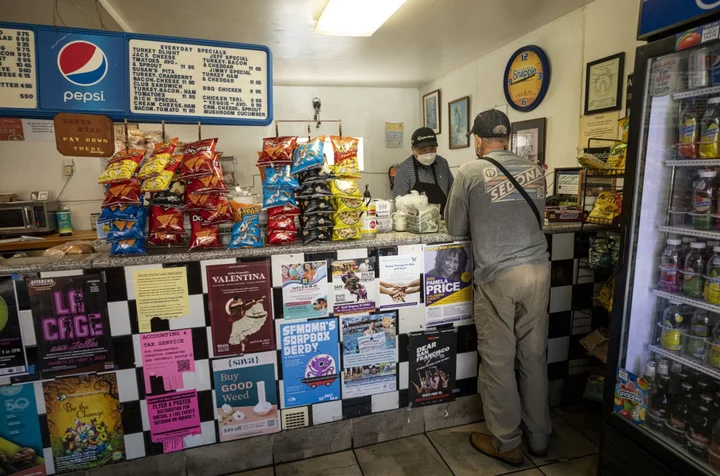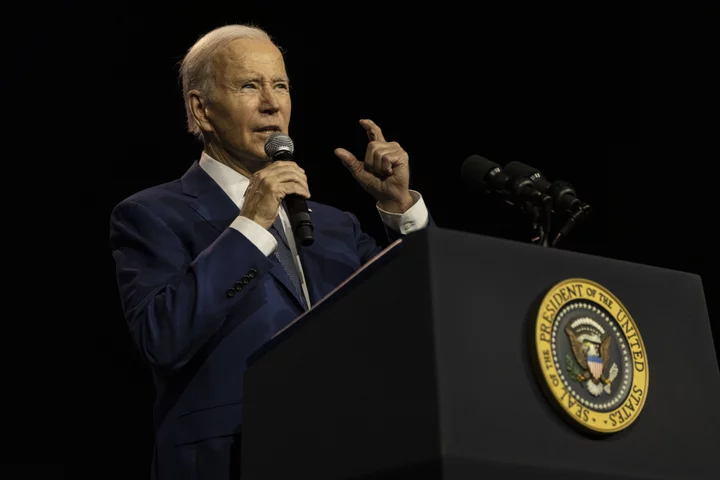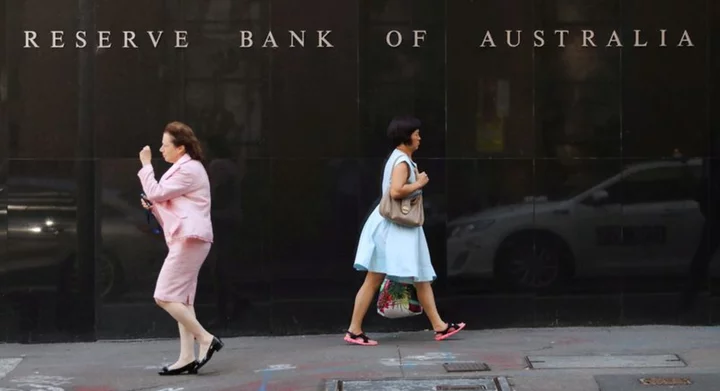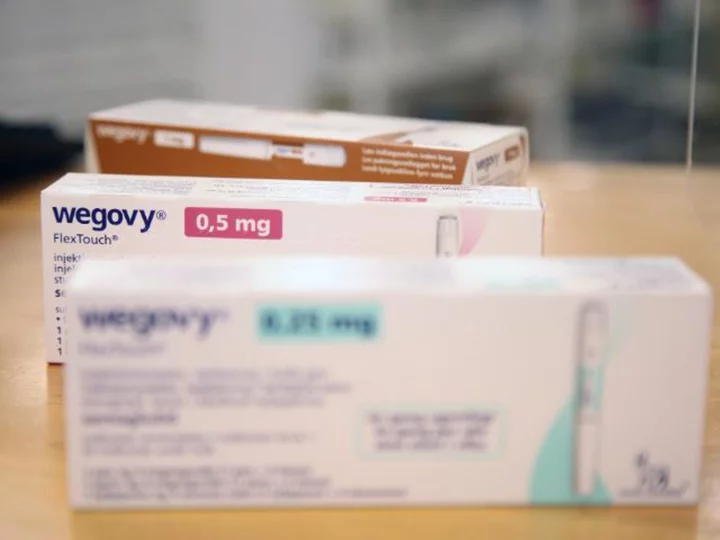US small-business sentiment fell in April to the lowest level in a decade, reflecting dimmer prospects for the economy and sales that are causing firms to dial back investment plans.
The National Federation of Independent Business optimism index decreased by 1.1 points to 89, the group said Tuesday. A gauge of owners’ sentiment about future business conditions slipped to a four-month low, while a measure of sales expectations was the weakest since August.
That contributed to a pullback in business investment. Less than one in five firms said they’re planning capital outlays — such as spending on new equipment and expanded facilities — in the next few months, the smallest share since the onset of the pandemic.
Only a net 3% of respondents said it was a good time to expand. While a touch better than the prior month, the share is still among the smallest on record.
A combination of elevated inflation, high interest rates, tighter credit conditions and recession concerns continue to weigh heavily on sentiment. And as business begins to slow, fewer owners are choosing to raise prices.
The share of owners who reported raising average selling prices declined for a fifth-straight month to a more than two-year low of 33%.
The survey suggests there was not a material change in credit conditions for small businesses in the month. In fact, the group’s measure of the availability of loans improved somewhat from a decade-low in March, but remains low.
Historically low unemployment and aggressive wage increases at big firms have made it difficult smaller firms to attract and retain workers. A net 45% of respondents reported vacancies they could not fill in the month, and 40% reported raising compensation.
(Adds graphic)









